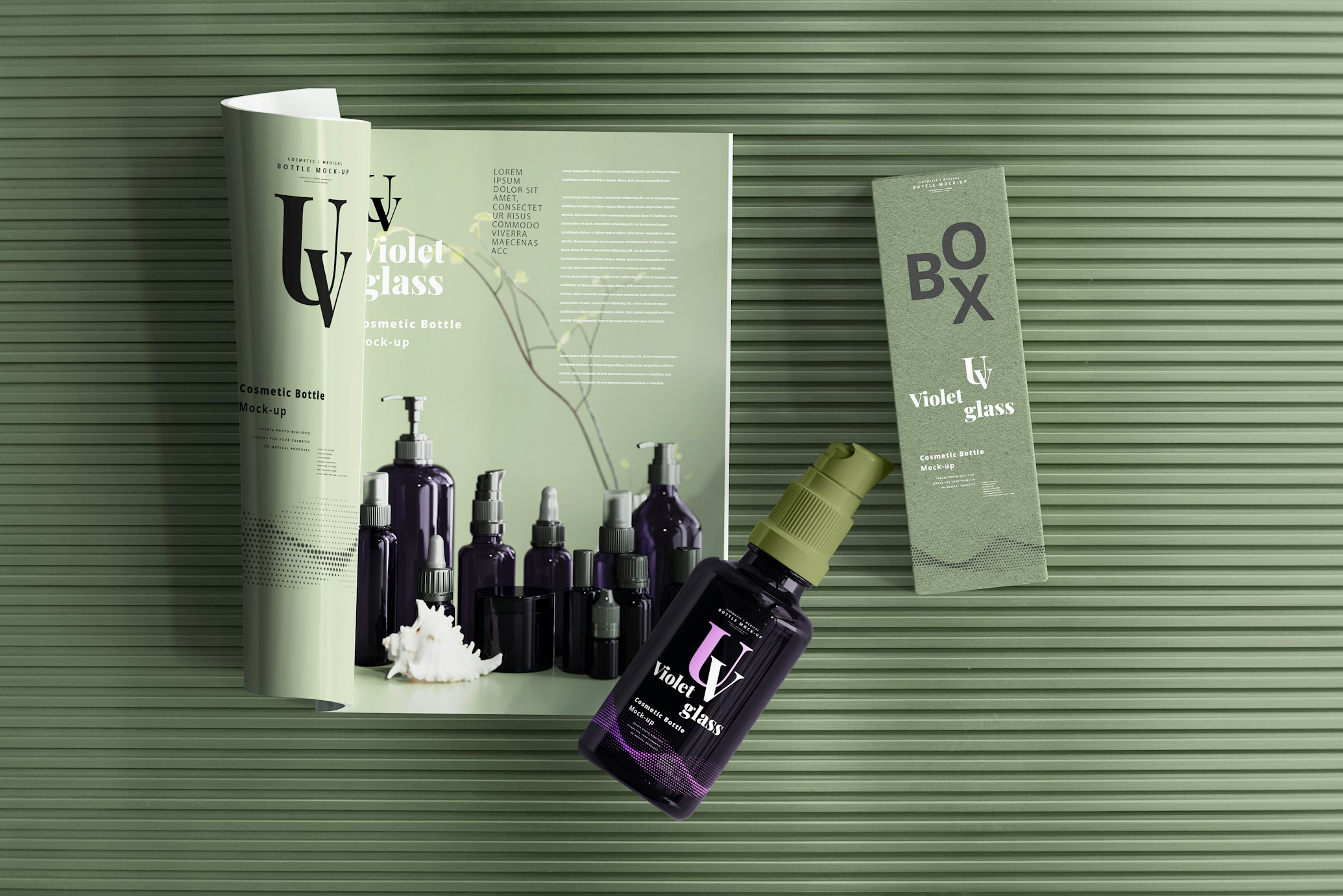
What makes customers fall in love with a brand, product, or service? Is it top-notch service, unique offerings, or perhaps even the appeal of a brand story? While all of these factors are key to customer loyalty, it’s personalization that customers yearn for. And this applies to all industries – we see it in retail, beauty, and healthcare, too.
McKinsey & Company’s research finds that 76% of consumers get frustrated when a company doesn’t deliver personalized interactions – and thanks to the state of the world, it’s much too easy for them to just do business elsewhere. [1] With personalization becoming more important than ever before, the healthcare industry needs to follow suit.
Strategies such as private labeling, white labeling, and custom manufacturing allow clinics, practices, and physicians to separate themselves from the ‘one-size-fits-all’ system. [2] They can offer products tailored to their unique audience’s needs, delivering an incredibly valuable level of personalization. Expected to grow at a CAGR of 7.6% to reach over 988 billion USD by 2030, the personalized medicine market is growing fast. [3]
Private Labeling vs. White Labeling vs. Custom Manufacturing: What’s the Difference?
Private labeling, white labeling, and custom manufacturing are three different ways clinics and physicians can craft a personalized product and enter the world of product differentiation. All three strategies offer the opportunity to stand out from the crowd and uniquely appeal to their independent customer base.
At a high level, private labeling products involve selling a product manufactured by a private label manufacturer under your own branding. The business often chooses a pre-existing product from a manufacturer’s catalog, and the manufacturer then makes the product solely for your brand. That means the product isn’t sold to any other retailers except you.
On the other hand, white labeling requires much less involvement. Rather than designing an entire product line from the ground up, businesses can purchase generic products that a manufacturer is already making and sell them under their own branding. These products are sold to multiple retailers, which makes the actual product non-exclusive.
The third option is custom manufacturing (also known as contract manufacturing), which is the most involved option. Businesses that are looking for complete control over the formulation process, pricing, branding, and marketing can essentially create a product or product line from scratch using this method. A third-party manufacturer is hired to produce a completely unique product and follow guidelines all the way from the initial idea to the formulation, design, packaging, and so on.
The following sections will give you a much deeper understanding of the three methods, including their key characteristics and pros and cons.
Private Labeling: Best for Exclusive Brand Advantage
With private labeling, brands can partner with a manufacturer that makes a certain catalog of products and choose one that ends up being only sold to them. While the business isn’t involved in tailoring the formulation or specific themselves, the exclusivity lies in the fact that the product can’t be found at any other retailer. The retailer, therefore, has exclusive selling rights for that competitive edge.
For example, if a renowned pharmaceutical manufacturer is able to produce a high-quality medication with a formulation that a healthcare provider is interested in, the provider can buy that medication to sell under their own brand to their patients.
Benefits and Limitations of Private Labeling
Benefits
- Product not sold by other retailers – Healthcare providers get exclusive rights to sell the particular product or product line under their brand. This means that other retailers won’t be able to sell your unique product, increasing your competitiveness in the market.
- Increased personalization compared to white labeling – While the product isn’t entirely unique from top to bottom, private labeling still offers you a unique product that can be branded and marketed to your liking. Comparing private vs white label products, companies won’t have a carbon copy product that simply has a different branding persona with white labeling.
Limitations
- Higher initial costs – This level of exclusivity still comes at a price. Private labeling products typically involve a higher upfront cost because of minimum order requirements and because the manufacturer is developing a specific product or product line for one client rather than a multitude of clients.
- Can’t customize the actual formula or product base – Personalization is still limited with private labeling. While you control the branding and marketing, the original formula is still the manufacturer’s creation. Especially in healthcare, this means being unable to tailor the formula to a specific patient need.
White Labeling: Best for Quick-to-Market Experience
For clinics that want to expand their product line but don’t want to put in the funds, time, and effort to develop a product entirely from scratch, white label products are the best solution for the quickest time to market.
For instance, a healthcare facility might want to offer its own line of skincare products for their patients. Instead of creating a line from scratch, they can purchase white label products, which are generic, made and tested by a reputable manufacturer, and market them under their own brand. With this method, the only customization is the product’s branding and marketing.
Benefits and Limitations of White Labeling
Benefits
- Easy and quick market entry – The most attractive benefit of white labeling is speed. As the manufacturer handles the entirety of product development and manufacturing, clinics, and practices can receive a fully developed product immediately and focus their efforts on selling the product.
- Lowest costs – If we compare private label vs white label products, white labeling involves fewer costs than developing a product from the ground up. There are typically few initial investments and ongoing expenses, as the process only requires the healthcare provider to make a purchase, similar to purchasing a product outright.
Limitations
- Shared competition – With white labeling, the same products will be sold by different practices, clinics, and retailers under different brand names and marketing, which means a higher chance of market saturation and intense competition.
- Very low control over product – Businesses don’t get much say in the product development process or final product quality. This means having very limited ability to tailor the product to fit their customers’ unique needs.
Custom Manufacturing: Best for Full Creative Freedom
Let’s take the example of a skincare clinic that specifically caters to a niche market segment – patients with highly sensitive skin that is adverse to off-the-shelf products. In this example, they would hire a qualified manufacturer to design, develop, and produce a line of effective skincare products exclusive to their clinic.
Custom manufacturing is the right choice if you want to bring an exclusive product to market with 100% unique specifications. This level of uniqueness will create a strong brand image that resonates specifically with your target audience. With this method, you’ll be able to control every element of the product creation process, dictating what the product looks like and how it functions.
Benefits and Limitations of Custom Manufacturing
Benefits
- Complete product differentiation – The biggest benefit of custom manufacturing is the potential for product differentiation. Rather than selling another generic item on the market, your product is entirely distinct and crafted to fit your brand’s values and vision. Especially in certain healthcare markets, this type of standout product can make a huge difference.
- Tailored to your audience – Being able to tailor the product formula, functionality, design, and aesthetics of the product means being able to address specific preferences and problems that your consumer base has. When customers recognize this level of personalization, they’ll be more inclined to make a purchase.
Limitations
- High costs – There’s no doubt that custom manufacturing is the most expensive strategy out of the three. With custom manufacturing, you’ll essentially have your very own manufacturer that is hired to produce products under strict specifications and guidelines just for your healthcare practice. The initial investment alone required for raw materials, research and development, and more can be significant.
- Longer time-to-market – Custom manufacturing is a long and intricate process that will extend time-to-market more so than any other strategy. With this in mind, getting a return on your investment may take a much longer time.
How to Decide the Right Strategy for Your Healthcare Practice
There are two major considerations when choosing one of the three strategies for your healthcare practice: a deep understanding of what you want your business to achieve and a deep understanding of your target audience.
While you want to specifically cater to your customers and what will help support their health best, you also want to consider how much involvement and free reign you want to have over the manufacturing process.
If you’re looking for minimal involvement and would rather prioritize time-to-market, white labeling is likely your best bet. For those who want to take the time to develop a completely novel product line, custom manufacturing will give you the total control you need. Interested in something in between? Private labeling products will offer a decent level of personalization and exclusivity with a less demanding process.
Whatever strategy you end up choosing, custom label products are an excellent way to ensure profitability for your business and elevate customer satisfaction.

